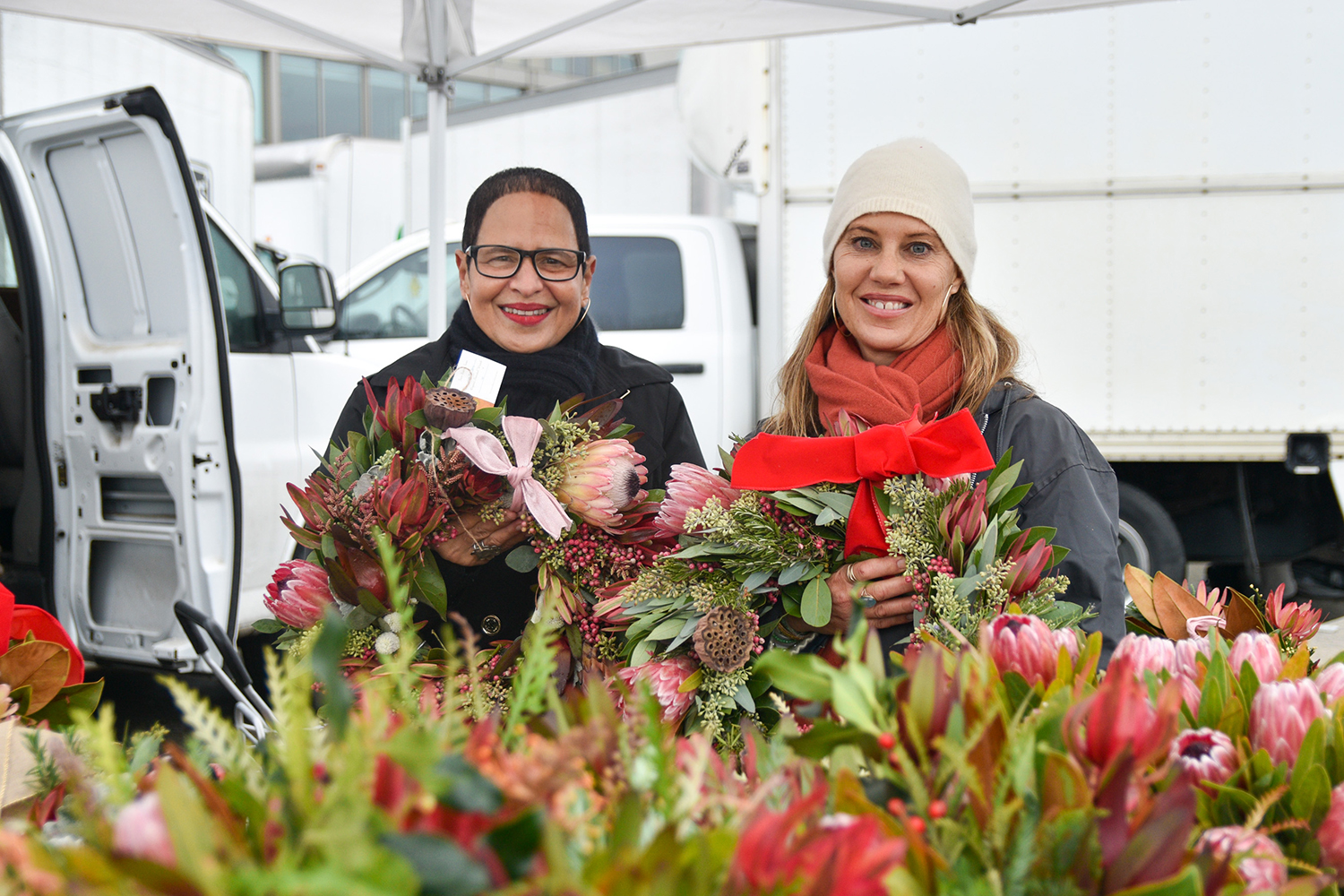
People
Robin and Nancy Gammons and their daughter, Jill Kayne, with 3 full-time employees
Farmland
5 acres in Aromas, about 95 miles to San Francisco
About
Robin and Nancy Gammons were both native Californians and enthusiastic home gardeners when they met in 1970. They were married in 1975, and, with the help of Robin’s father, were able to purchase land in Aromas to start a farm. The farm is named after their four daughters: Lucy, Jill, Dusty, and Prema. Jill, is following in her parents’ footsteps and managing the farm. From the beginning, the Gammonses’ approach to farming has been organic and ecological. They use a small tractor, a rototiller, and hand tools for planting. Four Sisters Farms’ offerings include perennial crops such as guavas, kiwis, and protea flowers. To Jill, family farms are essential for food access.
Certification
California Certified Organic Farmer (CCOF) since 1988
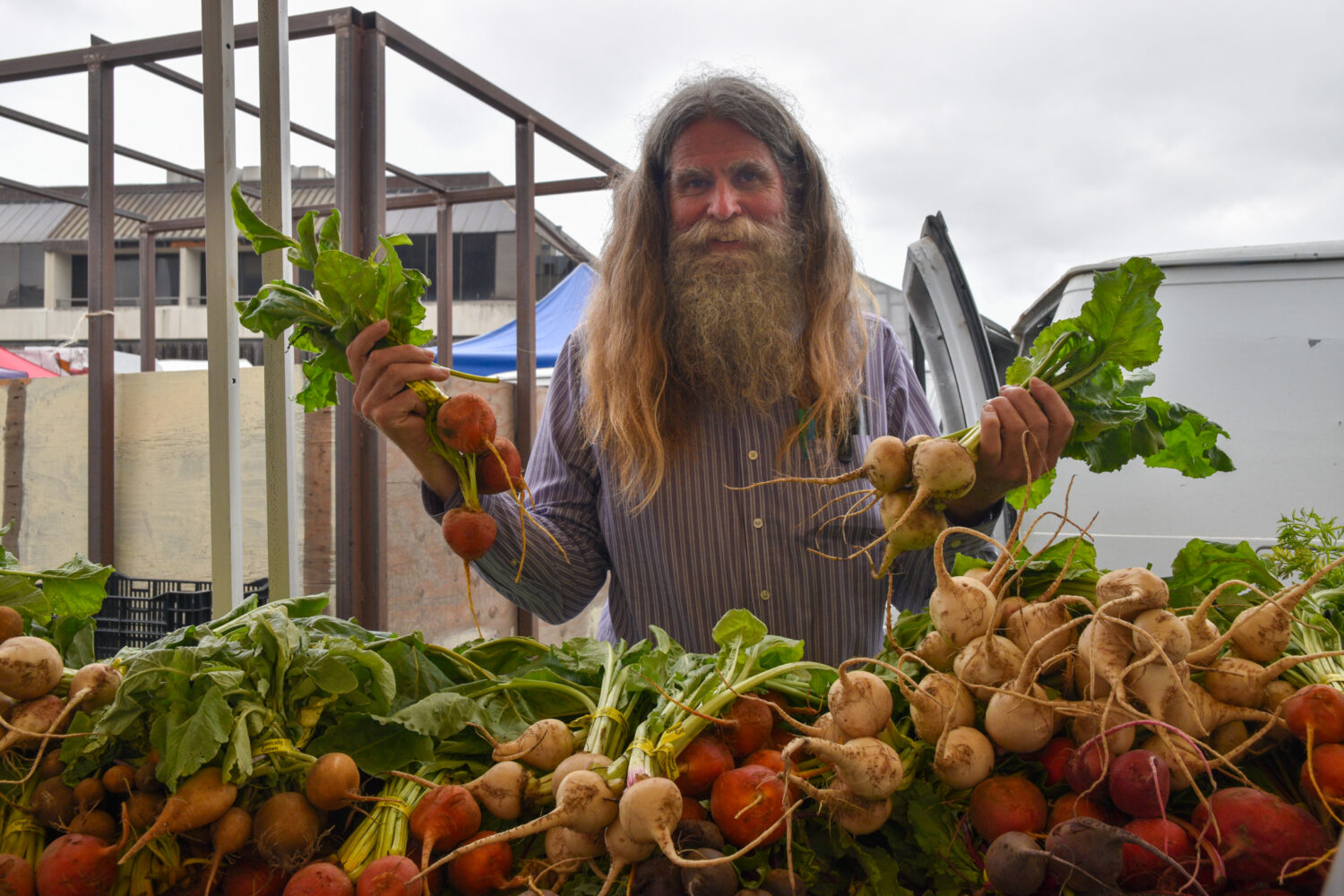
People
Grant Brians, his family, and 20 full-time employees
Farmland
240 acres in the Hollister area and Panoche Valley, about 100 miles from the Ferry Plaza Farmers Market
About
A farmer since age 14, Grant has experience in both small-scale agriculture and corporate agribusiness. In early 2006, Grant acquired Heirloom Gardens from founder Stuart Dickson. The farmland also includes Brians Ranch, which was the second member to join the CCOF on the Central Coast. The farm uses sustainable and biodynamic practices to grow over 100 varieties of vegetables, fruits, edible flowers, and herbs. Grant is committed to flavor, freshness, and genetic preservation. The farm primarily grows open-pollinated and farm-made varieties that have been passed down through generations (heirlooms). Grant is constantly expanding his repertoire of such varieties.
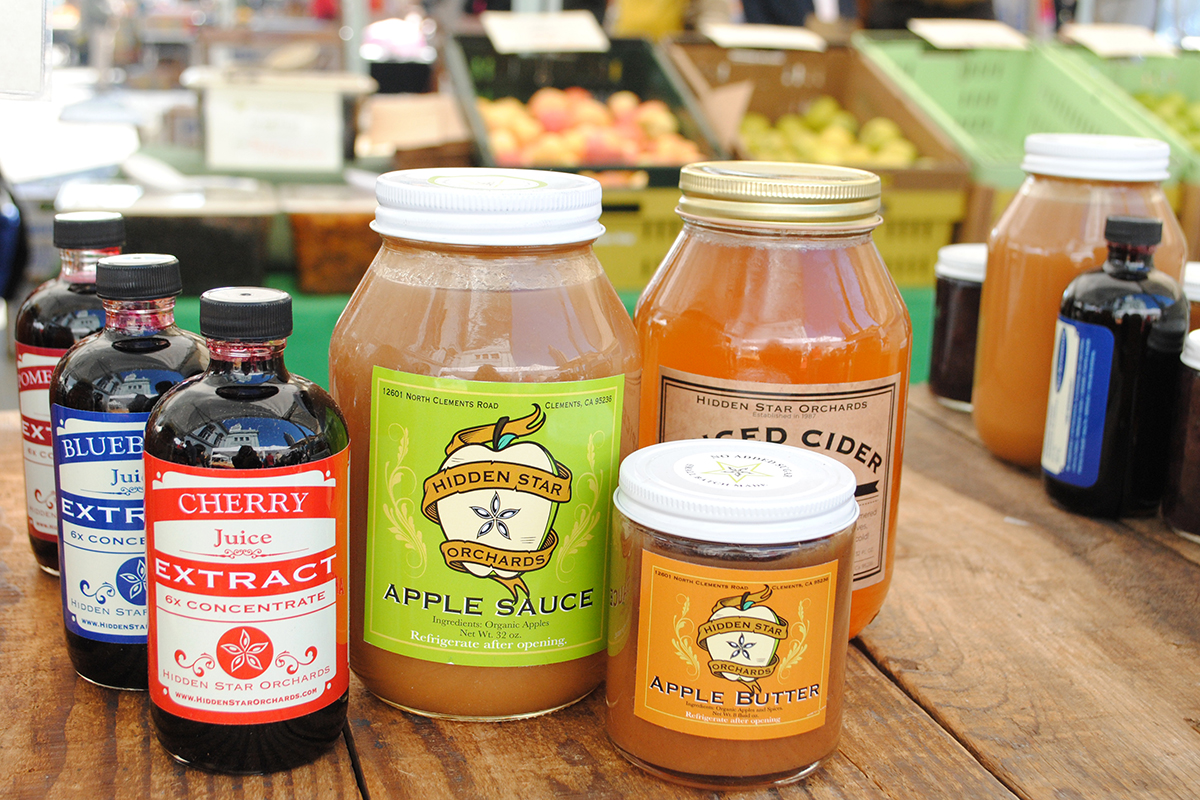
People
Johann Smit, Wendy Holm, and their son Orion, along with 6 part-time employees
About
Johann and Wendy collaborate to bring specialty fruit products to Bay Area farmers markets, including fresh and hard apple ciders, applesauces, preserves, fruit extracts, and dried fruits.
Hidden Star Orchards has a Cider Barn taproom in Apple Hill, open year-round, where they pour hard cider produced at their cidery in San Leandro. About 24 different varieties of hard cider are available at the Hidden Star Camino taproom.
Sourcing
In San Leandro, Hidden Star Orchards uses cold storage for fresh and frozen fruit and operates a commercial kitchen and cidery.
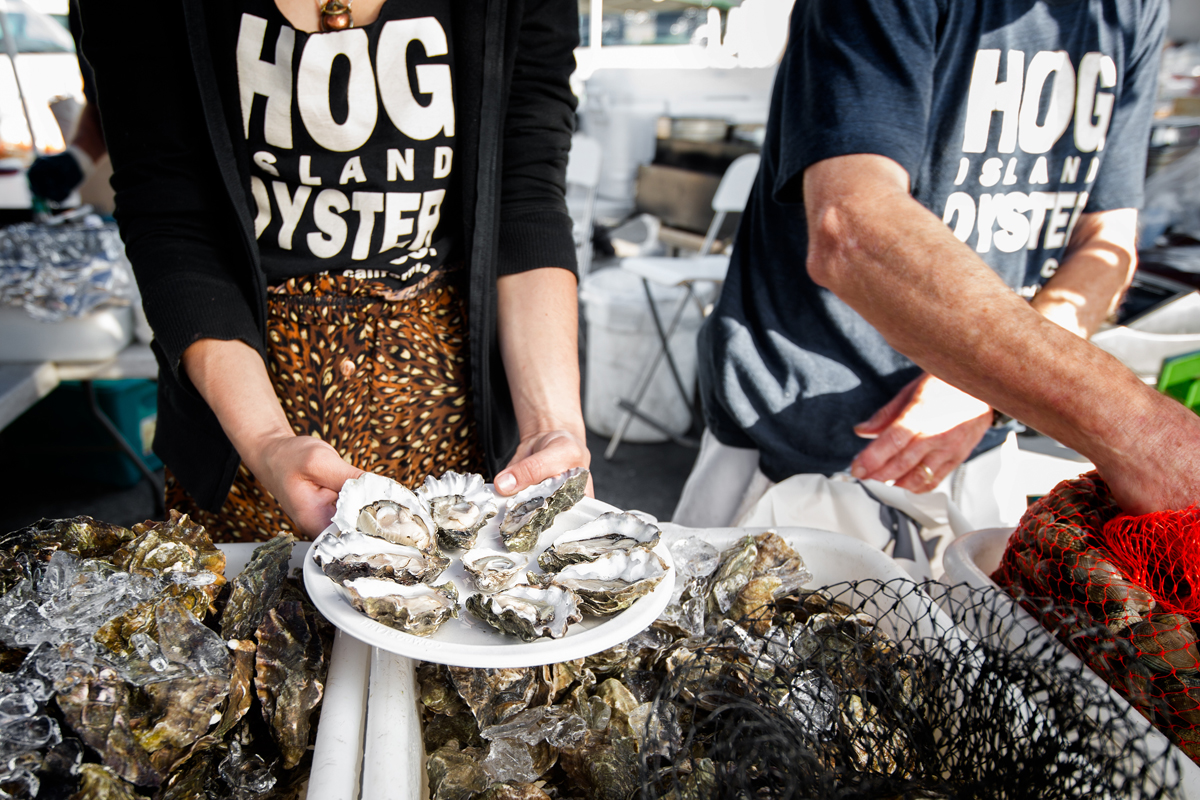
People
John Finger and Terry Sawyer, market manager Bryan Zeron Flores, farm manager John DeGunto, and 100 full-time employees
Farmland
150 saltwater acres in Tomales Bay and 45 acres in Humboldt Bay, about 50 miles to San Francisco
About
Hog Island Oyster Company was founded in 1982 with a five-acre lease in north Tomales Bay. The partners, both marine biologists, applied their knowledge of animal husbandry and aquaculture to designing a high-tech farm, adapting and improving the best techniques used around the world to suit Tomales Bay. Today, the company leases over 150 acres and grows their shellfish using the single seed method from seed produced at their hatchery in Humboldt Bay. Although this method is expensive and labor intensive, it allows them to produce oysters and clams of unparalleled quality. Hog Island occasionally contracts with other oyster sources in the Pacific Northwest to supply the farmers market during the rainy season.

People
Kalayada Ammatya, her daughters Aomboon (“Boonie”) and Onanong (“Ona”), and Aomboon’s husband Tim, with 12 full-time and 30 to 40 seasonal workers
Farmland
104 acres in Winters, about 67 miles to San Francisco
Farm History
Wife-and-husband team Kalayada Ammatya and James Beutel (“K” and “J”) started farming in 1982. James was a professor of pomology, the horticultural study and cultivation of fruit. Kalayada was born and raised in Bangkok, Thailand, and is a registered nurse. Aomboon and Tim now manage the farm and markets, and have developed strong relationships with restaurants around the Bay Area. The family believes in using natural growing methods and maximizing the use of the sun. They prune their fruit trees in the summer to provide the most sun exposure to each tree, which then stimulates growth and, they believe, leads to sweeter fruit.
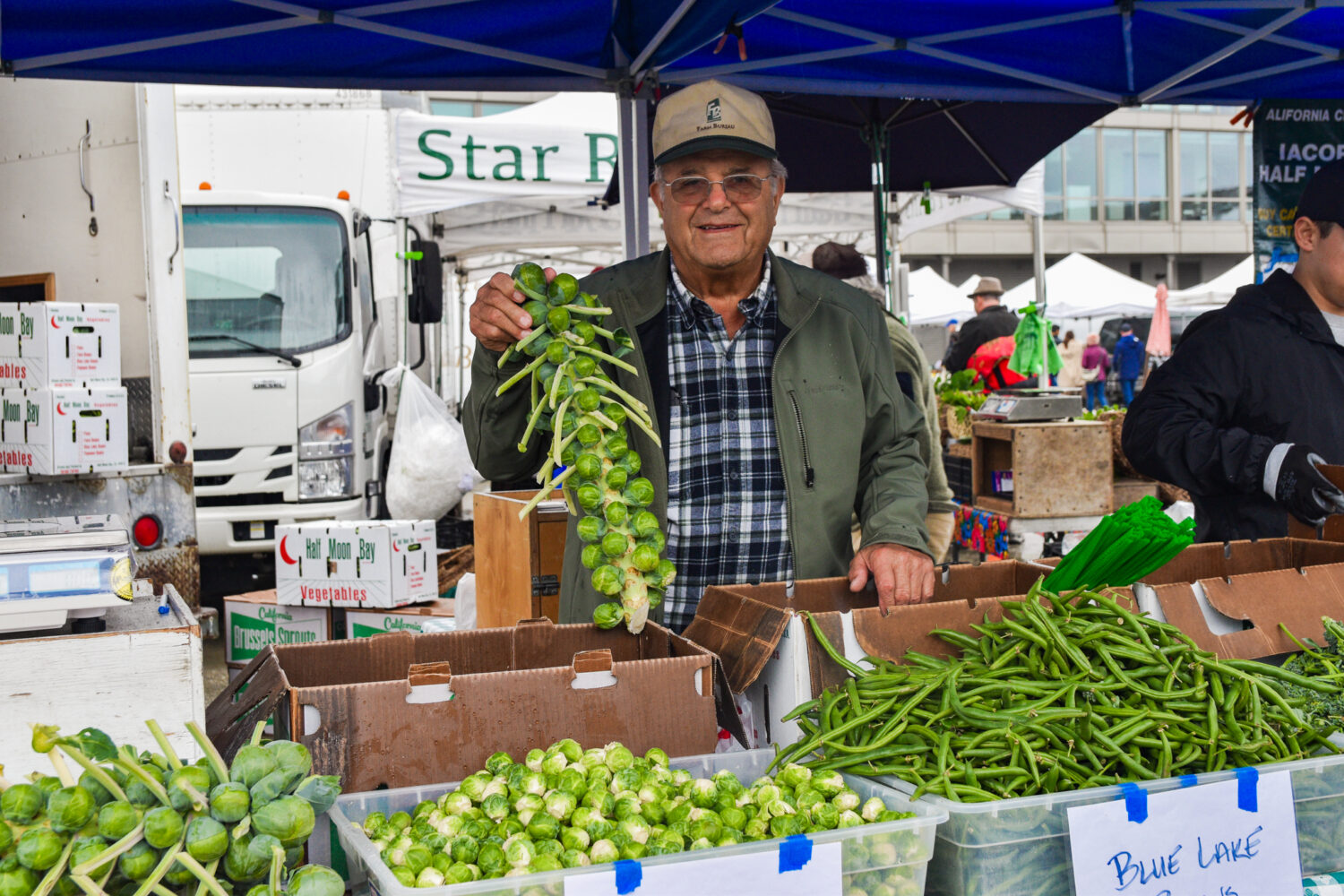
People
Louis Iacopi and his son, Mike Iacopi, along with 3 full-time and 11 seasonal employees
Farmland
165 leased acres in Half Moon Bay, about 35 miles to San Francisco
About
Iacopi Farms has roots in Half Moon Bay’s farming community that date back to the 1930s, when Louis’ father, Michael, settled in Pescadero, where he learned to farm. In 1962, Louis began his farming career with 200 acres in Half Moon Bay. He farmed there until 1979, when he moved the farm to its current location. To maintain soil fertility, the Iacopis use synthetic fertilizers in combination with cover crops and compost. They use herbicides only when necessary—usually in the winter, when the ground is too wet for the tractors. As a three-generation farming family, Iacopi Farms is one of a handful of original family farms that grow a variety of fresh vegetables including artichokes, broccoli, green beans, sugar snaps, Swiss chard and English peas. However, they are most known for their fresh and dried shelling beans.
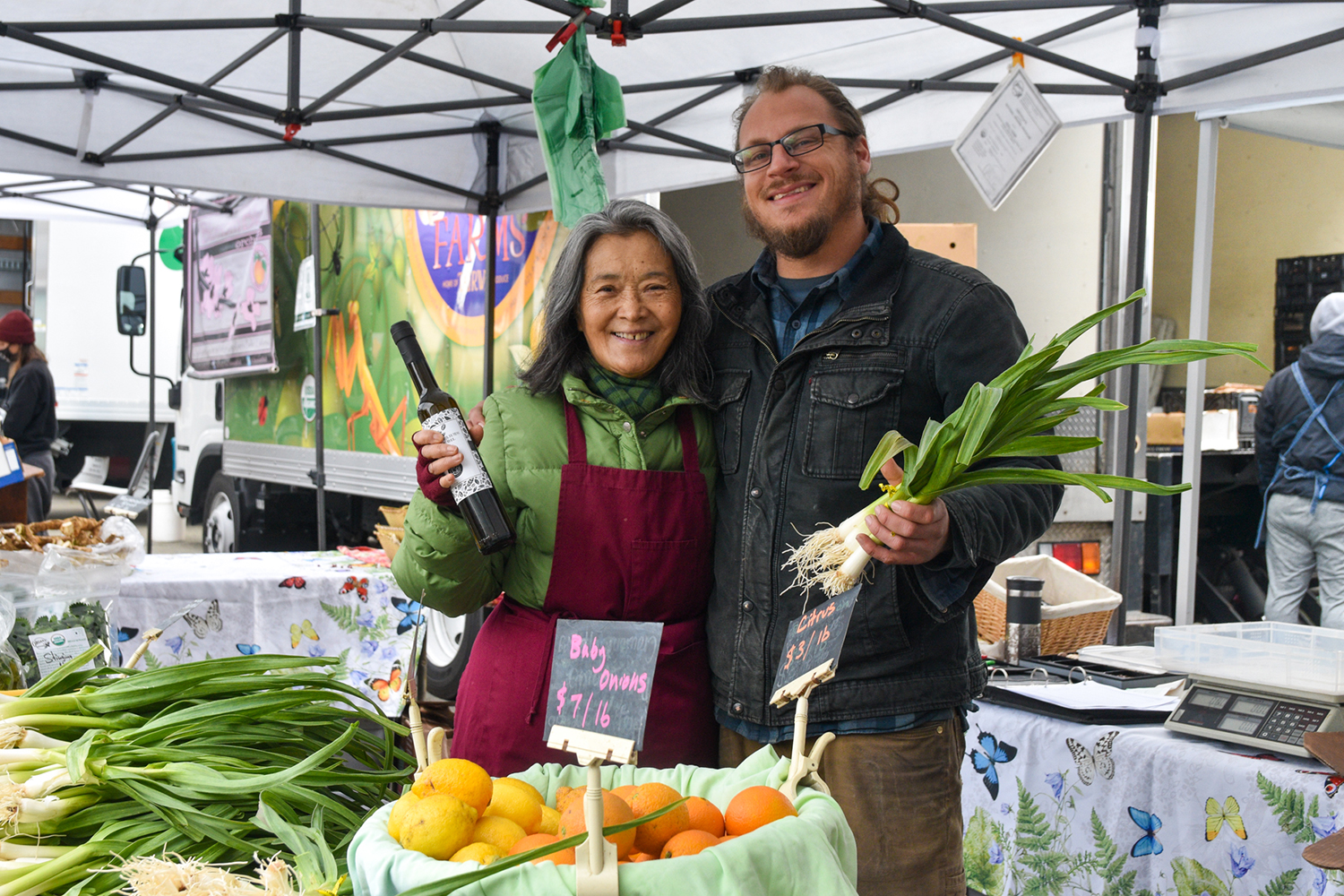
People
Rick Knoll, along with 10 employees
Farmland
10 acres in Brentwood, about 50 miles to San Francisco
About
Rick and Kristie were avid backyard gardeners in Santa Ana until 1979, when they purchased a weedy, 10-acre alfalfa field in Brentwood. Over time, their land evolved to become a productive agro-ecosystem that produces over 150 different products. The Knolls, known for their innovative practices, strive to continually increase the biodiversity and ecological stability of their farm. Their primary focus is “growing” more topsoil. They believe that if soil is well tended, it will provide healthy, nutritious food in perpetuity. Composting, cover cropping, low- and no-till, and crop rotation are just a few of the methods they employ to increase soil health. The Knolls describe their farm as “an organism unto itself, with its own rhythm and personality.”
Certification
Certified Organic. Knoll Farm became certified organic in 1984. They’ve always farmed using practices including organic, biodynamic and permaculture, among others. However, in 2002, Rick and Kristie dropped out of certification because they felt the term “organic” was being co-opted by industrial agriculture. They returned to organic certification in 2009.
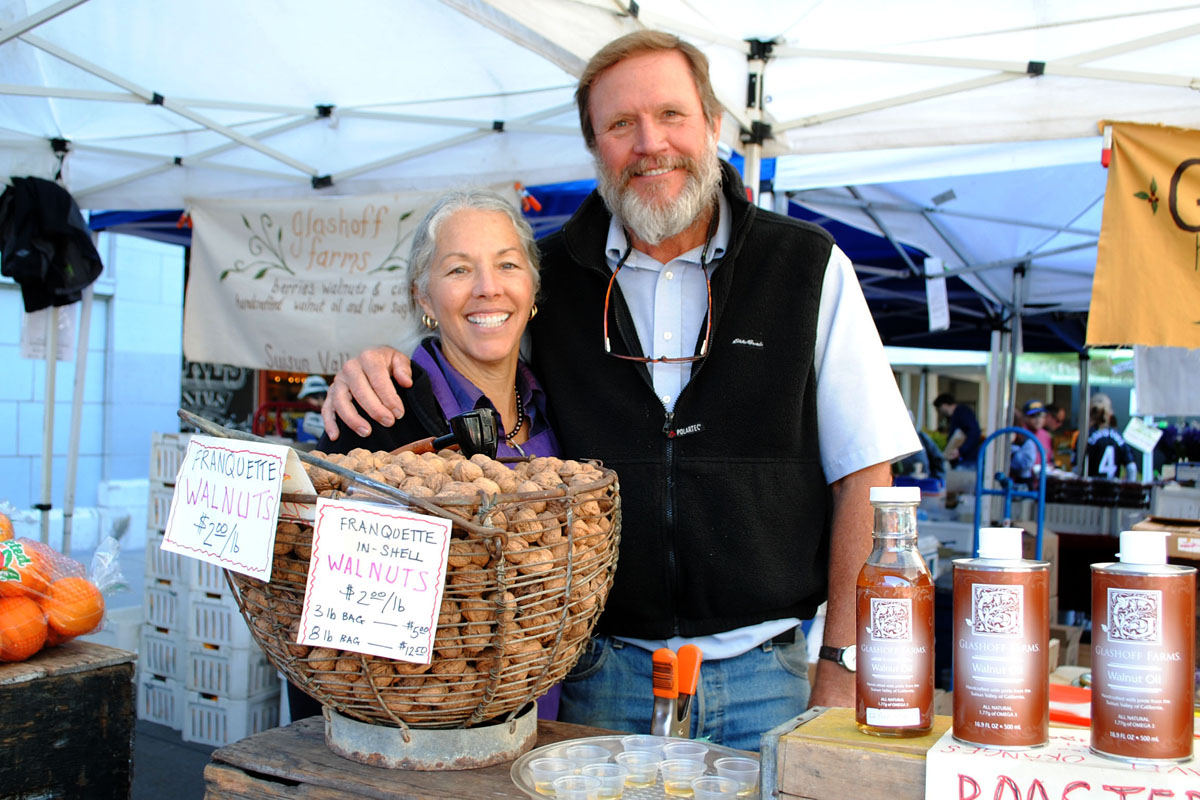
People
Larry and Maria Glashoff, along with 2 part-time employees
Farmland
70 acres in Fairfield, about 50 miles to San Francisco
About
Glashoff Farms is in Suisun Valley, a small valley nestled in the hills of California’s coastal range, northwest of Fairfield, California. Larry operates the farm full-time, while Maria runs a business raising Labradoodle and Goldendoodle puppies on the farm. Glashoff Farms grows Franquette walnuts, Triple Crown blackberries, olallieberries, boysenberries, raspberries, Navel oranges, Seville oranges, tangerines, grapefruit, and Hachiya persimmons. They also raise beef cattle. Larry creates and sells a selection of preserves, marmalades, and nut butters from the fruits and walnuts grown on the farm. The Glashoffs use synthetic fertilizers to maintain soil fertility. They use mechanical, organic, and chemical pest and weed control methods.
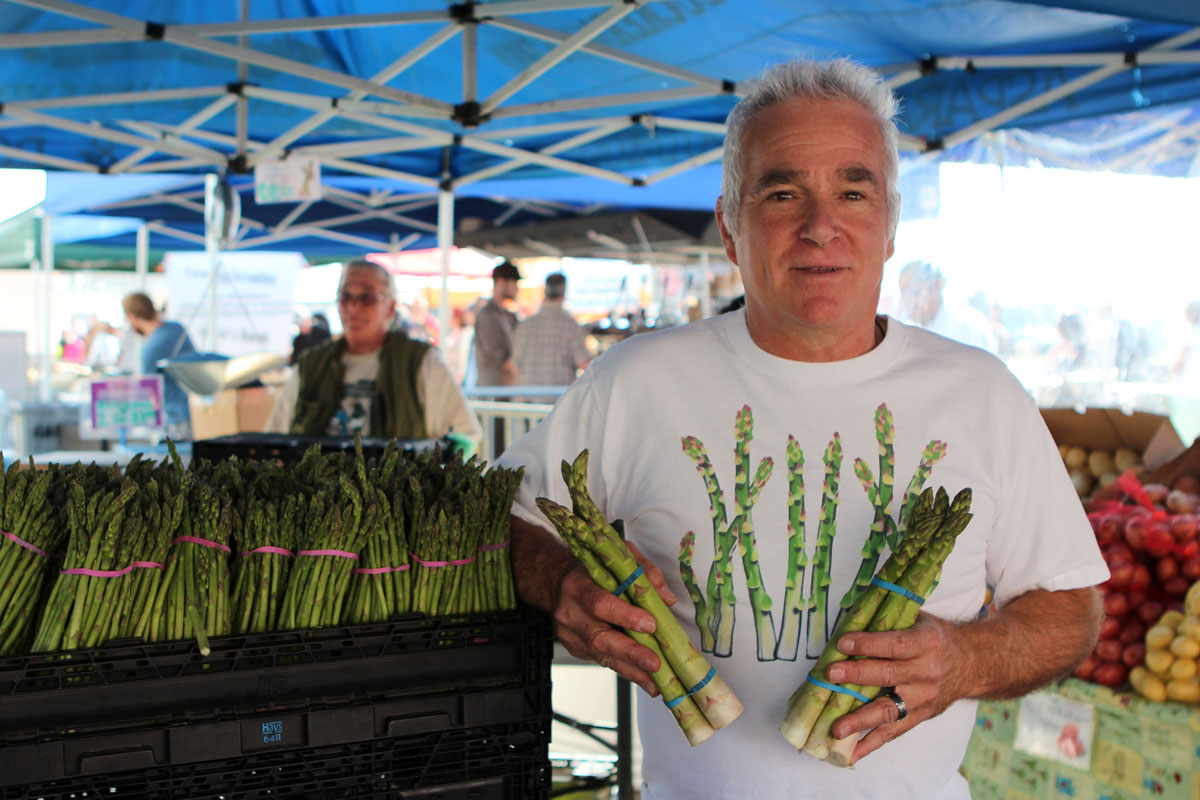
People
Roscoe Zuckerman, along with 50 full-time and 250 seasonal employees
Farmland
1,500 acres in Stockton, about 80 miles to San Francisco
About
Roscoe’s grandfather arrived in the Delta area in the 1920s and fell in love with the rich soil. Zuckerman’s Farm is located on an “island” in the Delta region formed by the San Joaquin and Sacramento rivers flowing toward the San Francisco Bay. The Zuckermans once had upwards of 15,000 acres in the area. Over the years, the farm has survived many floods. When asked what he likes most about farming, Roscoe replies, “I like knowing that I’m doing something that others are enjoying and that I’m helping to feed the world.” The farm’s soil fertility is maintained with synthetic fertilizers, cover crops, and compost. Pests are controlled using an Integrated Pest Management (IPM) system that involves both organic and synthetic chemicals, beneficial insects, and crop selection.









